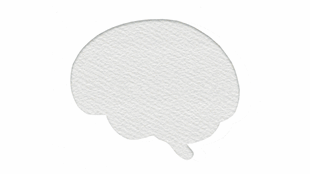There was a famous study in Italy of people living in residential retirement care who engaged in what was defined as high amounts of leisure activity – exercise, cognition and social interaction for 30 minutes, three times a week. What did that research find?
Basically, those who engaged in those levels of leisure activity held on to their cognitive faculties into their 90s far better than those who didn’t. Essentially they were showing that by keeping your brain and body active you could improve your cognition. In terms of treatment for cognitive decline or for dementia, those things are as powerful as most drugs for most people. So it was really an encouragement for people to keep very active physically and mentally.
What is our understanding now of why that should be the case?
When you exercise your body releases a lot of good things, including brain-derived neurotrophic factor (BDNF), which is good for the health of brain cells … The general principle at play is that when you exercise you’re much more likely to cause the brain to make new brain cells. But when you engage in cognitive activity – brain teasers, Sudoku, crosswords – and also the social aspect of meeting new people, you form new synapses between the cells. The connections between the cells are where memory is housed. So when you’ve got the combination of making or stabilizing brain cells, and you’re connecting them better, you end up with a healthier brain.
We used to assume we didn’t create new brain cells as we aged, but this suggests we do.
There is evidence that you can actually make new brain cells. We always thought that from about week six to week 12 in utero was when all of the neurons developed in humans – you were born with as many as you’d have. And there’s a lot of cell death that happens up to the age of about two, when cells that are not well connected die off. So you lived your life with a fixed number of neurons. Not so. We don’t think you need to have lots of new brain cells being born all the time, but we know from animal studies that the new cells are more excitable, more likely to drive memories into existing circuitry. So you don’t actually have to have a new neuron born that stays with you for the rest of your life – it does its job, then another one comes along and does its job.
So engaging in leisure activities, as you call them, can actively support that process?
The concept of leisure activity is really important. A lot of people are put off by the concept of exercise per se. But when you engage in the concept of leisure – focused leisure, not just sitting beside the pool, but meeting people, engaging, taking opportunities to do things differently, navigating different ways home, getting out for walks and bike rides – that is actually really important too.
Many people assume that unless it is hard, prolonged, vigorous exercise then it isn’t real – you’re saying that is not the right way to look at it?
I know in my own life I often think that if I can’t go for an hour’s run I won’t go. And that’s a real problem. If there’s an opportunity to do even 20 minutes, I should take it, because that will be worth it.
One key factor in keeping our brains healthy seems to be variety – in one’s social life, exercise routines, even travel routes.
I think it’s really important. The taxi driver study in London really showed that – people who have to drive many different routes have a much bigger hippocampus, the area involved in learning and memory. And I think part of it is just keeping the brain fresh. If you’re forming new memories because you’re seeing different houses, road signs, streets, those sorts of things, you’re remembering, you’re taking that in. The brain is not just a passive bystander, it’s actually taking those things in. So the more chances you give it, the more agile it’s going to be.
But we’re living in a highly specialized world, where people don’t get the chance to vary their behavior that much, right?
Many people become experts at one particular thing – extremely good at running, for example. But put them on a bicycle and they can’t go the distance, and vice versa. But actually most people would like to have a well-rounded life where they’re not all biceps and no quads. They’ve got a mixture physically, but also in their own minds. If you just do the same thing every day, you’ll probably get good at that, but there will be aspects of life you’re just not experiencing. The brain is the only organ that you can’t overtax – you’re not going to have a meltdown if you start doing things differently.
In terms of how beneficial exercise is to the brain, there was an amazing study using mice that seemed to suggest an optimal level – what did that show?
The study used three groups of mice. Once group had undergone short term exercise, another group had run a lot more on a running wheel, and a third group of extreme runners that did a lot more. It was designed to find which of the groups had the biggest improvement of memory on account of the exercise.
So the mice were put into a bath and had to find a platform to get out – how did they fare?
The study showed that the animals that engaged in the smallest amount of exercise would take 20 to 30 seconds to find the platform and hop out. The ones that ran the middle distance had a far greater number of new neurons in the hippocampus, and they would go directly for the platform. But the third group that had exercised the most would swim around and often never find the platform and have to be fished out.
What was different about that last group?
It was found that they had high levels of glucocorticoids, the stress hormones that are known to be detrimental to hippocampal neurogenesis, the production of new brain cells in the hippocampus. So there’s obviously an optimal level. It’s important to stress that the majority of humans never get close to their optimal level. Some do, some overexercise. But we know that other things contribute to this build up. People have raised glucocorticoid levels when they have a very poor diet, or if they’re under stress. These are hormones that are designed to essentially stress the cell out a bit, and prepare it for a bigger insult later. So when you exercise you get a rise in glucocorticoid levels – but if you keep those elevated you’re stressing the cells out long term, and that’s really detrimental to them. You can get a massive uplift in mental performance by exercising, but if you take that too far it can be worse for you.
What might we extrapolate from a rodent study to humans?
We know a lot about what’s happening in the animals, but we don’t know a lot about what is happening in the brains of those people who are getting better cognition from leisure activities. We know the outputs are better, but we don’t know if the same mechanisms are at play in the human brain. So we have to make some assumptions there.
But we know things like brain-derived neurotrophic factor is something that’s really good and is produced by exercise. You can measure the circulating levels of these things in humans, but proving they are operating by the same mechanism in the human brain is really challenging.
Can we make strong generalizations though?
Yes. I think there is a tendency in science to ask, “what was the one thing that caused that effect?” Then we’ll turn it into a pill and give it to people. Then suddenly the whole point is gone – the point of the social interaction is that it is enjoyable and fun, that it is human, it’s about interaction, what brings us together. As a scientist I’m naturally inclined to the reductionist approach, but I think if you know that you’re getting the outcome from the exercise, then we can’t just short-cut everything, especially around some of these things that are very social.
We are social animals after all.
We are. It’s been shown that men who have three meaningful interactions with other men every week are much less likely to have depression. Which is quite remarkable when you think about it. If you consider the challenges of depression versus the positive enjoyment of meeting up with others, that’s quite profound.
Can we take these findings and apply them to degenerative conditions such as Alzheimer’s disease? Could environment, variety and exercise play some part in protecting us?
It’s tricky to know where the line lies, because there are many people who are highly educated and keep fit who get Alzheimer’s. So it’s not something where you can say, do A and you’ll get B. But I do think the principle of looking after your body through exercise and cognitive stimulation is very important.
We know for a fact that the more educated you are the less likely you are to get Alzheimer’s disease. We also know the more physically fit you are the less likely you are to get it. So I think the evidence is there that those things are very good for you.
We should think of Alzheimer’s as the disease of a lifetime, because some of the hallmark features are developing very young in humans. So anything you can do is good. It’s a bit like asking, what’s the best time to plant a tree? Yesterday, of course. The next best time is today. It’s the same with Alzheimer’s disease. There are lots of things people can do just to keep themselves generally healthy.
What else might help?
We now know that beta amyloid which is a hallmark Alzheimer’s disease can be cleared from the brain during sleep. So the thinking is that, if you sleep less, you have less time to flush it out. If someone reads this in five years’ time they’ll probably say this is highly simplistic thinking, because it’s an emerging field. But we do know that sleep is very important.
The current generation is potentially chronically sleep-deprived. Work pressures on people are possibly higher than in times gone by, particularly mental work pressure. We sit in an office, not getting that exercise from physical activity as part of our work.
Which is really worrying. As a society we should really be promoting better work and leisure behaviors, do you agree?
I do think that if society could exercise more together, or have that as more of a focus, everyone would be better off. From my own life, empirically, my best years of work productivity have been when I’ve done big things physically. I ran a couple of marathons three and four years ago, and in 2014 I did a half ironman. And even though I worked a lot less because of all the training, I just really made work count. I got up earlier and went to bed exhausted and slept well. That physical side of it was just so powerful.
10 TIPS FOR MAINTAINING A HEALTHY BRAIN
- Contrary to what we used to think, we do create new brain cells throughout our lives
- Physical exercise makes this process much more likely
- Doing puzzles, crosswords and brain-teasers helps form new synapses, the connections between brain cells where memory is housed
- So does meeting new people and interacting with others regularly
- Adding variety to daily routines – driving or walking routes, etc – also encourages synapse development
- All forms of these activities are beneficial, not just concentrated physical workouts
- Studies of mice suggest too little, but also too much physical exercise can be detrimental to new brain cell production
- Poor diet and high stress levels also handicap new brain cell growth
- Maintaining a healthy and varied physical and mental lifestyle may lower the risk of Alzheimer’s disease
- Healthy sleep patterns are also vital to good brain health, including lowering risk factors for Alzheimer’s


Dr Maurice Curtis is a neuroscientist and lecturer at the University of Auckland’s Centre for Brain Research. He researches brain stem cells, stem cell migration, neurodegenerative diseases and neurorehabilitation, and was recently awarded the Faculty of Medical and Health Sciences prize for early career excellence in teaching.
If you want more tried, tested and true news from the leading edge of health and fitness sign up to get Fit Planet insights and advice straight to your inbox.
Follow the freshest thinking @fitplanetmag.








